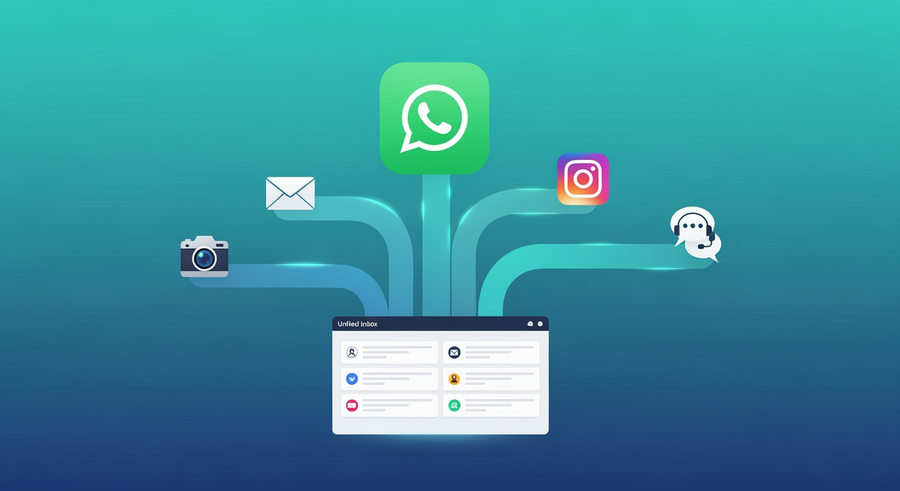The travel industry is evolving at an unprecedented pace, driven by advancements in AI for travel industry. As businesses adapted to a post-pandemic world, AI reshaped how people plan, book, and enjoy their trips, offering personalised recommendations, intelligent chatbots, and predictive tools that cater to individual needs.
Consider this: you're planning a vacation but unsure about the destination. Instead of generic suggestions, AI could analyse your past trips, preferences for adventure or relaxation, and even your favourite travel photos on social media to recommend destinations that align perfectly with your interests. This is the transformative potential of AI for travelling—it turns ordinary journeys into personalised experiences tailored to your unique tastes.
AI empowers businesses to enhance efficiency and provide seamless, tailored experiences. From predicting customer preferences to handling disruptions with precision, it’s revolutionising customer satisfaction. This article explores how AI is not just improving operations but driving innovation in the travel industry, giving businesses a competitive edge in an increasingly dynamic market.
What is Artificial Intelligence (AI)?
Artificial Intelligence (AI) simulates human intelligence to solve complex problems and enhance customer experiences. This cutting-edge technology enables machines to think, decide, and adapt, offering businesses a powerful tool for improving efficiency and staying competitive. By analysing vast amounts of data, AI can recognise patterns, predict behaviours, and deliver insights that drive innovation across the travel sector.
What happens when you're trying to plan a seamless vacation, but you're overwhelmed by options? AI-powered chatbots and virtual assistants can step in to provide instant answers, suggest personalised itineraries, and even recommend hotels that match your style. Behind the scenes, machine learning algorithms optimise pricing, predict traveller preferences, and streamline operations to ensure your journey is smooth from start to finish.
As AI for the travel industry continues to evolve, its applications are growing rapidly. From managing resources during flight disruptions to predictive maintenance in aviation, AI is transforming every touchpoint of the travel experience. It empowers businesses to offer tailored solutions, exceed the expectations of modern travellers, and maintain a competitive edge in a fast-changing market.
Looking ahead, AI for travelling is set to play an even larger role in shaping the future of how we explore the world. With its ability to adapt and innovate, AI will continue to redefine the way businesses and travellers interact, making every journey more efficient, personalised, and memorable.
Impact of AI in travel and hospitality industry
Artificial Intelligence (AI) is transforming the travel and hospitality industry, bringing fresh innovations to how businesses operate and engage with customers. From enhancing efficiency to crafting personalised experiences, AI is reshaping the travel journey for both businesses and travellers alike. Here are some of the key areas where AI is making a significant impact:
- Personalised travel experiences
AI enables businesses to deeply understand customer preferences and provide highly tailored recommendations. Instead of generic suggestions, travellers receive personalised options for flights, accommodations, and activities that suit their interests. For example, AI-powered platforms can curate unique travel packages based on past bookings or search behaviour, ensuring every trip feels special and customised.
Beyond that, real-time AI insights can adapt recommendations during a trip, such as suggesting nearby attractions, dining spots, or local events based on location and weather. This dynamic personalisation not only enhances convenience but also creates memorable, stress-free travel experiences that feel uniquely designed for each traveller.
- Simplified booking and support
AI-driven tools like chatbots and virtual assistants streamline the booking process, handling everything from reservations to cancellations in real time. These tools reduce friction in the customer journey, allowing travellers to make quick, confident decisions.
Beyond simplifying bookings, AI for travelling provides 24/7 support, answering questions instantly and resolving issues proactively. For instance, a chatbot can rebook a cancelled flight or suggest alternatives within minutes, saving travellers time and stress. For businesses, this not only reduces workloads but also builds customer loyalty by delivering a seamless, hassle-free experience that feels both efficient and personalised.
- Accurate demand forecasting
AI excels at analysing vast amounts of market data and trends to predict customer demand. By anticipating peak seasons and shifts in traveller behaviour, airlines, hotels, and service providers can adjust pricing and manage inventory more effectively.
Additionally, AI in travel and tourism enables dynamic pricing strategies, adjusting rates in real-time based on demand fluctuations, competitor activity, and market conditions. This precision helps businesses avoid overbooking or underutilisation while offering competitive rates to customers. Furthermore, predictive insights allow for better resource allocation, such as staffing and promotions, ensuring businesses are prepared to meet the rising expectations of modern travelers with efficiency and reliability.
- Operational automation
AI in travel planning streamlines repetitive tasks like check-ins, room assignments, and baggage handling, allowing businesses to cut down on human errors and save valuable time.
Beyond these basics, AI-powered automation extends to predictive maintenance for equipment, optimising energy use in facilities, and managing inventory levels. Smart systems can detect issues before they escalate, ensuring seamless operations and reducing downtime. By handling routine tasks with precision, businesses free up their staff to focus on personalised customer interactions, creating a superior experience that boosts satisfaction, loyalty, and operational efficiency.
- Real-time assistance
AI tools provide travelers with real-time information on flight changes, travel disruptions, and weather updates. Virtual assistants help travelers navigate airports, access boarding details, and stay informed about schedule changes, minimising stress and improving the overall travel experience.
Beyond notifications, AI for travel booking can suggest alternative routes, nearby accommodations, or dining options during disruptions. Language translation tools powered by AI make communication in foreign destinations seamless, breaking down barriers for international travellers. By delivering timely, actionable support, AI ensures that travellers remain informed, empowered, and confident throughout their journey, no matter the circumstances.
- Fraud detection and safety measures
AI strengthens security by identifying fraudulent transactions and detecting unauthorised activities. At hotels and airports, AI-powered surveillance systems monitor surroundings, ensuring a safer environment for customers.
Additionally, AI in the travel industry can analyse patterns in transaction data to flag anomalies, such as unusual booking behaviours or payment discrepancies, preventing fraud before it occurs. Biometric systems powered by AI, like facial recognition, enhance security at checkpoints while speeding up identity verification processes. By combining proactive fraud detection with advanced safety measures, businesses build trust, protect operations, and provide customers with peace of mind during their travels.
- Sustainability initiatives
AI for travelling supports sustainable travel by recommending eco-friendly accommodations and carbon-neutral options. It also helps businesses reduce waste and optimise resource usage, aligning with the growing demand for responsible and sustainable travel choices.
Moreover, AI enables precise energy management in hotels, such as smart lighting and climate control, reducing carbon footprints. Predictive analytics assist in minimising food waste in restaurants and flights by forecasting demand more accurately. By integrating AI into sustainability efforts, businesses not only meet consumer expectations but also contribute to a healthier planet, ensuring travel remains enriching and environmentally conscious for generations to come.
AI innovations shaping the future of the travel industry in 2025 and beyond
- Personalised travel experiences with AI-driven recommendations
AI technology is set to elevate the travel experience even further by offering hyper-personalised travel options. From custom itineraries to tailored hotel and activity recommendations, AI in travel and hospitality analyses data like past travel history, personal preferences, and real-time factors such as weather conditions.
This precision enables AI to suggest off-the-beaten-path destinations, alternative routes to avoid crowds, or niche activities based on unique interests, making every trip feel like it was designed just for the traveler. By doing so, it curates seamless travel experiences that are truly unique to each individual. This level of personalisation not only enhances the customer journey but also boosts satisfaction and loyalty, turning travelers into repeat customers and brand advocates.
- AI-powered predictive analytics for dynamic pricing models
In 2025, AI for travel will continue to transform the way travel businesses approach pricing. With predictive analytics, AI systems will evaluate a variety of data points, such as demand trends, competitor prices, and local events, to forecast shifts in the market and adjust prices accordingly.
AI can also assess individual customer behaviour, offering tailored discounts or packages that encourage bookings while optimising revenue. For example, a frequent traveler might receive exclusive deals during non-peak times, filling seats or rooms that might otherwise go unused. This dynamic pricing strategy allows businesses to optimise capacity, maximise revenue, and offer the best possible value to customers while staying competitive in an increasingly complex market.
- Virtual travel assistants enhancing customer support
By 2025, AI-powered virtual assistants will become essential to customer service in the travel industry. These assistants will go beyond answering basic queries, providing real-time assistance with issues like booking changes, flight delays, and itinerary updates.
Additionally, these virtual assistants will proactively send alerts, such as gate changes or cancellation notices, and suggest alternative solutions like rebooked flights or nearby accommodations. With multilingual capabilities, they’ll also assist international travelers by bridging language gaps, ensuring smooth communication. Using advanced natural language processing and machine learning, these AI assistants will deliver fast, efficient, and personalised support, ensuring travelers have a smoother and more hassle-free experience from start to finish.
Real-world examples of AI transforming the travel industry
Airlines and hotel chains have increasingly adopted AI-powered chatbots to provide round-the-clock customer service. These chatbots help travelers with booking inquiries, flight updates, and issue resolution in real time.
For example, KLM’s chatbot, BlueBot, enables customers to check in, book tickets, and receive flight status updates, significantly improving convenience while reducing wait times and the need for human agents. Advanced chatbots can even predict customer needs, such as suggesting upgrades or nearby accommodations, offering a more personalised and proactive service experience.
2. AI-driven personalization in travel recommendations
AI is transforming how travelers discover destinations and plan activities. Companies like Expedia and Airbnb use machine learning algorithms to deliver personalised travel suggestions based on user behaviour and preferences.
By analysing search history, past bookings, and browsing patterns, AI in travel and tourism can recommend trips that match individual interests, making the booking process more relevant and enjoyable. This technology also helps travelers uncover hidden gems and unique experiences, such as boutique stays or local-guided tours, ensuring every trip feels curated and memorable.
3. Facial recognition for streamlined airport security
AI-powered facial recognition is becoming a key part of airport security systems globally. Airlines such as Delta and airports like Singapore Changi are utilising AI to speed up check-ins and enhance security.
By scanning passengers’ faces at various touchpoints—from check-in counters to boarding gates—AI reduces wait times, improves security measures, and makes the entire travel experience more efficient and hassle-free. Beyond convenience, it enhances safety by identifying potential threats in real time, giving both travelers and authorities greater peace of mind.
Final words
To wrap up, AI for travel industry is set to revolutionise how we plan, book, and experience our travels in 2025 and beyond. From AI for traveling, including AI-powered booking tools, to predictive analytics and facial recognition, technology is enabling businesses to provide personalised, efficient, and seamless experiences. The impact of AI is already visible, with chatbots, predictive models, and facial recognition transforming the travel landscape.
The integration of AI into the travel industry enhances operational efficiency while offering travelers more tailored solutions. This empowers them to make informed decisions and explore new destinations with ease. As AI continues to evolve, its role in travel and hospitality will drive even more innovation, delivering more opportunities to elevate the travel experience, reduce costs, and streamline services. Whether through AI for travel booking or assisting with real-time travel adjustments, AI will play a significant role in shaping a more dynamic, intelligent, and customer-focused future.




.png)











